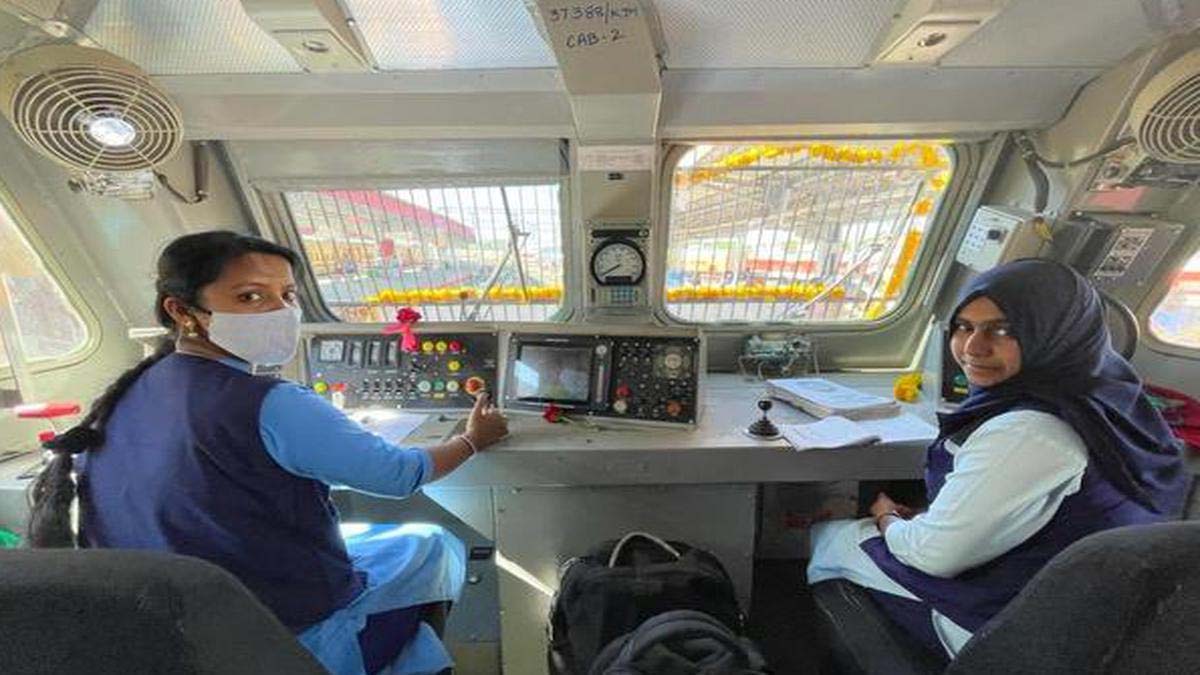New Delhi: Female train conductors have appealed to the Railway Board, requesting either an enhancement in their “dismal” working circumstances or a transition to alternate divisions.
A consortium of women train operators affiliated with the All India Railwaymen Federation recently presented their grievances to Railway Board chairperson Jaya Varma Sinha, emphasizing their adversity and requesting a one-time option for a change in cadre.
Among the challenges faced by female train conductors include the absence of lavatory facilities on locomotives, hindrances in changing menstrual hygiene products, the obligation to leave the engine for technical issues even at night, and the lack of transport provisions for late-night shifts.
At present, more than 1500 women are serving as train operators and assistant train operators across diverse railway zones nationwide, raising their concerns through various railway unions and federations.
“The Railways is introducing new engines with restroom facilities, but the replacement of older models with newer ones will be a protracted process,” commented a female train operator.
In 2018, during a meeting with high-level railway officials, the former Railway Board chairman was informed of the difficulties faced by female train conductors at work, another female train operator who was part of the group that met Sinha reported to PTI.
“It was noted in the ‘Record Note of Discussion’ that a one-time option might be extended to female staff in Engineering, Train Operator, and Guard categories for a change of position.” “However, no subsequent measures were implemented. Hence, we demand either an improvement in our working conditions or a transition in job roles,” she stated.
All India Railwaymen Federation general secretary Shiva Gopal Mishra endorsed the women’s demands. “Female train conductors present a legitimate request for either better working conditions or alternative job opportunities. AIRF wholeheartedly supports their appeal and will continue to advocate for their cause until resolutions are reached,” he declared.
Another female train conductor emphasized that they merely sought basic amenities in their line of work. “Upon entering this field, we were not informed of the lack of restroom facilities in the engine or the difficulty in changing sanitary pads during menstruation. We only discovered these issues upon starting the job,” she noted.
“We restrict water intake to avoid the need for restroom breaks, leading to potential health issues. Male train operators face challenges too, but the situation for females is particularly distressing,” she stated.
Female train conductors suggest that, in addition to updating locomotives, the Railways could enhance conditions for female conductors in other areas, such as providing transport for late-night shifts.
Per railway regulations, if a passenger activates the emergency chain or a technical fault arises during operation, the train operator must exit the engine to address the issue.
“This guideline needs revision. If an emergency chain is pulled in the middle of the night in an isolated area, how is a female train operator expected to disembark and resolve the problem?
“Railway policies contravene various legal protections for female workers available in other industries,” a female train operator remarked, sharing her experience of injury sustained while exiting the engine to resolve a technical issue.
She added, “While the Railway celebrates the introduction of advanced trains like the Vande Bharat, it overlooks the lack of separate washroom facilities for women in running rooms and lobbies.” “The need to stay in running rooms during out-of-station duties is exceedingly uncomfortable,” she added.




